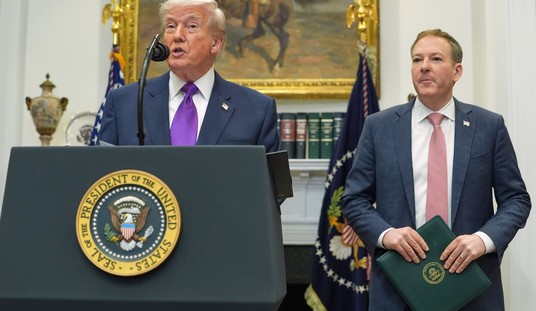I suppose that it was inevitable during the course of this Ferguson fracas that the entitled cop worldview would be heard from in a public forum. Here at last the Washington Post has published this column by a former L.A. cop named Sunil Datta and it is hopefully a real eye opener. I always like it when titles let you know exactly what sort of article you’re about to read, and this one doesn’t disappoint as Datta declares: “I’m a cop. If you don’t want to get hurt, don’t challenge me.”
A lot of this article is extraneous fluff about how most cops are good at their job, along with self-congratulation on the part of the author about what an awesome cop he was. The meat of the article is his advice to citizens about how to behave in the presence of cops:
Even though it might sound harsh and impolitic, here is the bottom line: if you don’t want to get shot, tased, pepper-sprayed, struck with a baton or thrown to the ground, just do what I tell you. Don’t argue with me, don’t call me names, don’t tell me that I can’t stop you, don’t say I’m a racist pig, don’t threaten that you’ll sue me and take away my badge. Don’t scream at me that you pay my salary, and don’t even think of aggressively walking towards me. Most field stops are complete in minutes. How difficult is it to cooperate for that long?
I know it is scary for people to be stopped by cops. I also understand the anger and frustration if people believe they have been stopped unjustly or without a reason. I am aware that corrupt and bully cops exist. When it comes to police misconduct, I side with the ACLU: Having worked as an internal affairs investigator, I know that some officers engage in unprofessional and arrogant behavior; sometimes they behave like criminals themselves. I also believe every cop should use a body camera to record interactions with the community at all times. Every police car should have a video recorder. (This will prevent a situation like Mike Brown’s shooting, about which conflicting and self-serving statements allow people to believe what they want.) And you don’t have to submit to an illegal stop or search. You can refuse consent to search your car or home if there’s no warrant (though a pat-down is still allowed if there is cause for suspicion). Always ask the officer whether you are under detention or are free to leave. Unless the officer has a legal basis to stop and search you, he or she must let you go. Finally, cops are legally prohibited from using excessive force: The moment a suspect submits and stops resisting, the officers must cease use of force.
Mr. Datta’s advice takes good common sense truth about what steps cops are entitled to take (respond to someone aggressively charging toward them or compromising their personal safety zone, conduct pat downs when Terry conditions are met) and mixes it up with absurd views about what he’s entitled to be free from (having mean things said about him) and combines the two into the belief (shared by many cops) that encountering the latter means they are free to respond as they would to the former. The First Amendment protects citizens even during the course of interacting with cops. I’m not legally required to bow and scrape before a cop or to refrain from calling him a racist, if I think he is one.
Datta’s policy prescription, that if you are unjustly harassed by a cop, you can always sue, is just flatly impractical for 99% of the public who is harassed by cops. Lawsuits are difficult, time consuming, and life-wasting to engage in. Not to mention the fact that if you comply peacefully and the cop doesn’t injure you or your property the damage award is going to be small which makes these claims unappetizing for attorneys to take (you can get attorneys’ fees for a Section 1983 action, but if you lose you of course get zero). The vast majority of people don’t have the money to hire an attorney to sue a bad cop on principle so the suggestion Datta offers is essentially a prescription for a world in which a docile citizenry pliantly and politely follows every cop’s order, lawful or not, and no cop faces punishment for it. Which, of course, is exactly the idea.
Last year, Ken White at Popehat wrote an almost identical post to this Washington Post column, only sarcastically. I will excerpt it at length here because it is really worth the read (and be sure to click the links).
Chief Orosa is right! Everyone knows that cops never question, arrest, tase, beat, or shoot you unless you committed a crime first. It’s just logic. If you weren’t a criminal, why would they tase you?
Chief Orosa is a very busy man, I am sure, so I will help him out by making other common-sense suggestions designed to avoid unpleasantness in interactions with law enforcement.
If you don’t want police to shoot your dog when they come to notify you that your son has been murdered, then don’t have a son who is a homicide victim.
If you don’t want to be threatened with investigation by the District Attorney’s Office, then don’t charge a deputy prosecutor for lap dances, and certainly don’t make him pay the cover.
If you don’t want your yard dug up, don’t get accused by psychics of having buried bodies there.
If you don’t want your collie shot, then don’t let her cross the path of a cop with a demonstrated history of violence.
If you don’t want to be reduced to drinking your own urine while abandoned in custody over the weekend, don’t smoke pot near a DEA facility that is understaffed.
If you don’t want police knocking on your door at midnight, then be available at midnight if they want to dispute something you wrote about them in the newspaper.
If you don’t want your disabled son beaten, pepper-sprayed, and tased, then get him a speech pathologist so police won’t think he’s dissing them. They’re sensitive.
Read, as they say, the whole thing.
The hallmark of a free society is that cops are subject to the law, not a law unto themselves. They are not super citizens who have some entitlement to never having their feelings hurt or never being argued with. Whether I would or would not personally verbally provoke a cop this mindset among cops must be stamped out. If you can’t take citizens arguing with you or vehemently expressing their displeasure then you should not be a cop and it this fact should be exposed for all to see. The one thing I agree with here is that all cops should be videotaped as much as possible; problematically, most cops that believe in everything else Datta says in this column tend to disagree with that.
There is a difference between what a citizen will often voluntarily do and what a cop is actually entitled to in terms of deference from citizens, and this sort of article that blurs the lines between the two shows the dangerous attitude and mindset many citizen face.














Join the conversation as a VIP Member